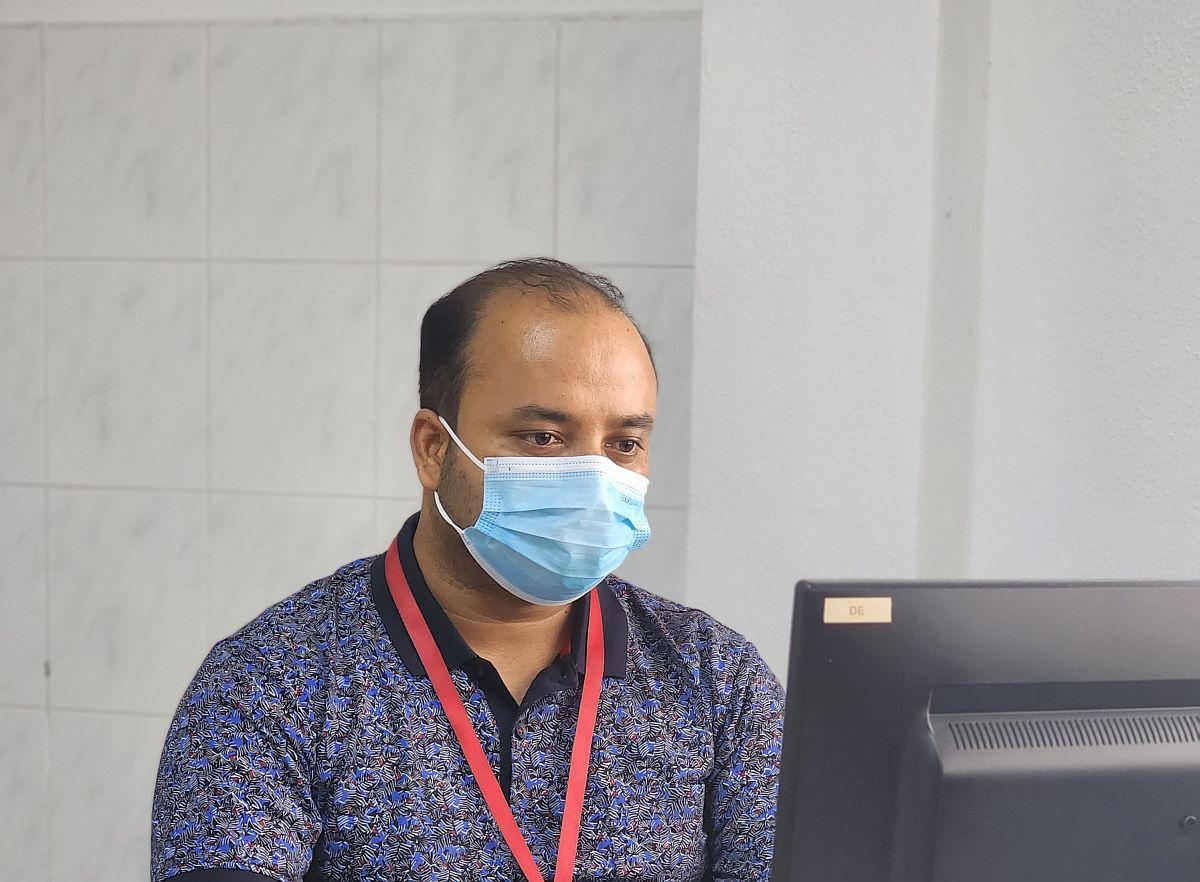KUALA LUMPUR, June 20 – On this World Refugee Day (June 20, 2023), four Rohingya refugees who were forced to flee Myanmar due to targeted violence share their stories with Doctors Without Borders (Médecins Sans Frontières/MSF).
Their stories showcase their remarkable resilience and strength, and how the kindness of Malaysians helped them get through tough times.
Abu Bakkar, a 36-year-old Rohingya refugee from Myanmar, shared his journey and the difficulties he faced upon arrival in Malaysia in 2013. He said the first few months were difficult as he was not able to find places for necessities and get used to the cultural differences. However, with the help of the local community, Abu Bakkar overcame these challenges.
“Finally, I slowly became good neighbours with the community where I was staying. The local community was helpful. They provided meals and that’s nice,” he said.
He added that he did not choose to be a refugee, but that his situation forced him into becoming one. “For me, I came here to save my life. In Myanmar, we were not a poor family. We had business, work, and houses. All I want is to go back to my homeland and be reunited with my family.”
For now, he could only dream of the day he would be able to head back. “If I was back in Myanmar, I would not be alive. I came here to take refuge and I want to thank the people of Malaysia — they are kind-hearted people,” he added.
Teenager Hajrah,19, a refugee born in Malaysia to Rohingya parents, shared her family’s story of resilience.
“My family has been in Malaysia for 30 years. We left Myanmar due to the conflict,” she explained as she shared her story in fluent Bahasa Malaysia.
Hajrah faced numerous hardships, including her parents’ divorce and financial struggles. However, she also experienced the generosity of her Malaysian neighbours.
“One day, my neighbour who is a makcik (an elderly woman) said she was willing to pay for our rent which was overdue by five to six months at that point. I was so grateful. I will never forget her kindness,” Hajrah said, emphasising the profound impact of her neighbours’ support.
She said her family did not have the means to pay the monthly rent of RM300 (around US$65) at that point.
Another heartwarming moment was when neighbours offered to buy baju raya (traditional outfits) and shoes during the festive season. “That was paling bahagia (most joyful) for me and I will never forget it,” she said.
Muhib, who arrived in Malaysia 10 years ago, shared his experiences as a refugee fleeing violence in Myanmar.
Reflecting on his new life, Muhib said, “We, refugees, are passing our days and lives here. Some people are bad, but some good people help us.”
Despite facing challenges and limited access to rights, Muhib expressed gratitude towards Malaysia. “This is the country I took refuge in. I thank the people of this country. They are kind-hearted people,” he said.
Muhib recalled that at the height of the Covid-19 pandemic, when the movement control order (MCO) was being implemented in Malaysia, he felt grateful that food was distributed by locals to help the Rohingyas living in his area.
Despite the positive experiences, Muhib urged other fleeing refugees not to come to Malaysia due to difficulties in accessing basic care. He said he could understand why some people may be hostile to them.
“Staying here for one day, two days, fine. If it becomes two to three days, then four days, five days, to one month, three months, one year and then 10 years, of course, I might not like it myself,” he said.
“If I was local, I would feel the same — why are you bothering my country, why are you becoming a burden to my country? Unfortunately, we do not have a choice,” he said, while emphasising that coming to Malaysia saved his life.
Shehnaz, who came to Malaysia in 2015, shares a slight difference with her refugee experience as she entered the country via an international flight instead of the common boat journey that most Rohingya refugees go through.
“I was born and brought up in Rakhine state, Myanmar. I came to Malaysia in 2015. First, I had to flee Myanmar and I came to Bangladesh. I have been there for nine months where I prepared all my documentation to come to Malaysia,” she said.
Shehnaz advocates for refugees to continue sharing their life experiences as it is important to create awareness about refugees among the local community.
The 25-year-old said she had conversations with locals who thought Rohingya was a country instead of an ethnic group. She shared how misconceptions can be addressed through open dialogue.
“I cannot blame the locals if they don’t know about us. But my plea is for you to please open your hearts and minds to get to know us,” Shehnaz urged.
She emphasised the significance of kindness and awareness as they contribute to an easier and more peaceful life for refugees.








